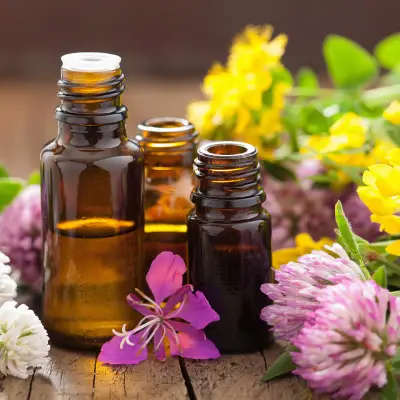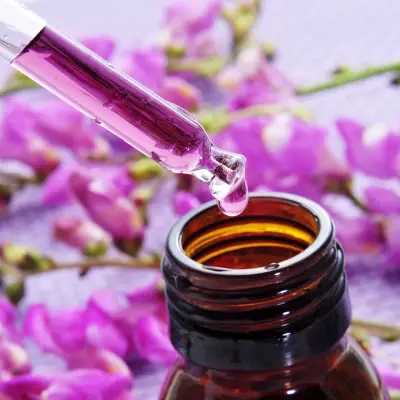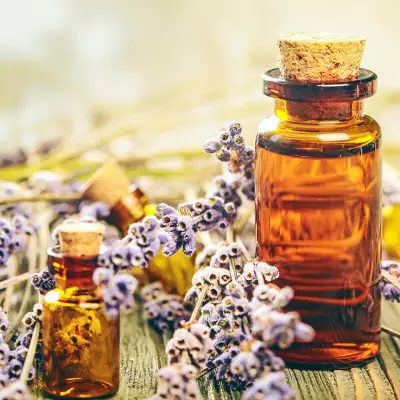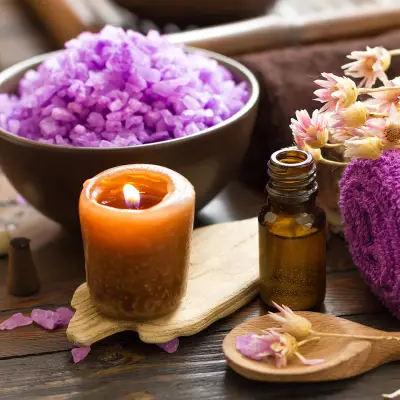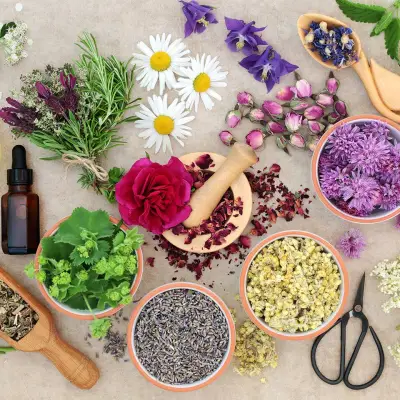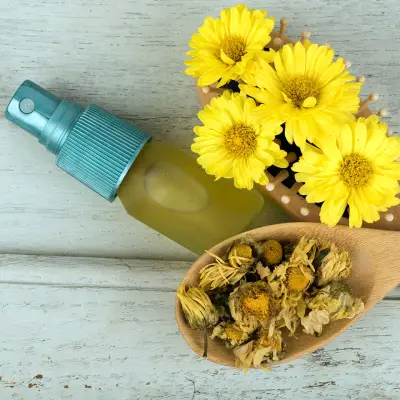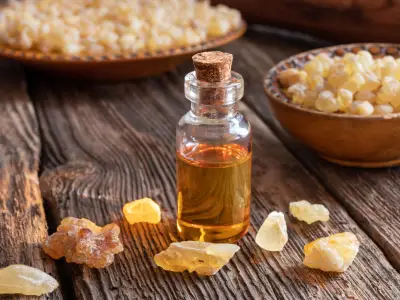If you’re searching for a natural way to boost your hair’s health, lavender oil is a top choice. From easing scalp irritation to potentially supporting hair growth, this fragrant essential oil offers a range of benefits.
So, can lavender oil really improve your hair? And how exactly should you apply it? This guide explores how to use lavender oil effectively, understand its potential benefits, and decide whether it’s right for your routine.
This article is for informational purposes only and does not constitute medical advice. Always consult with a qualified healthcare professional before starting any new hair or scalp treatment, especially if you have underlying health conditions or allergies.
Jump to:
Recommended for you!
Best SellersWhat is Lavender Oil?
Lavender oil is an essential oil derived from the flowers of the lavender plant, Lavandula angustifolia. It’s been used for centuries for its calming and healing properties. While many people associate it with stress relief and better sleep, lavender oil also offers a range of benefits for the skin and hair.
This oil contains compounds known for their antimicrobial, anti-inflammatory, and soothing effects. These qualities make it a popular ingredient in skincare and hair care products. When used properly, it can help calm the scalp, support stronger hair, and add softness and shine to your locks.
Is Lavender Oil Good for the Hair?
When used correctly, lavender oil may help improve scalp health, reduce dandruff, strengthen strands, and support growth. Its natural properties are gentle yet effective, making it suitable for most hair types.
Its calming scent also contributes to a more relaxing and enjoyable self-care routine. Whether your hair is dry, oily, or somewhere in between, lavender oil can usually be adapted to suit your needs.
Lavender Essential Oil Benefits for Hair
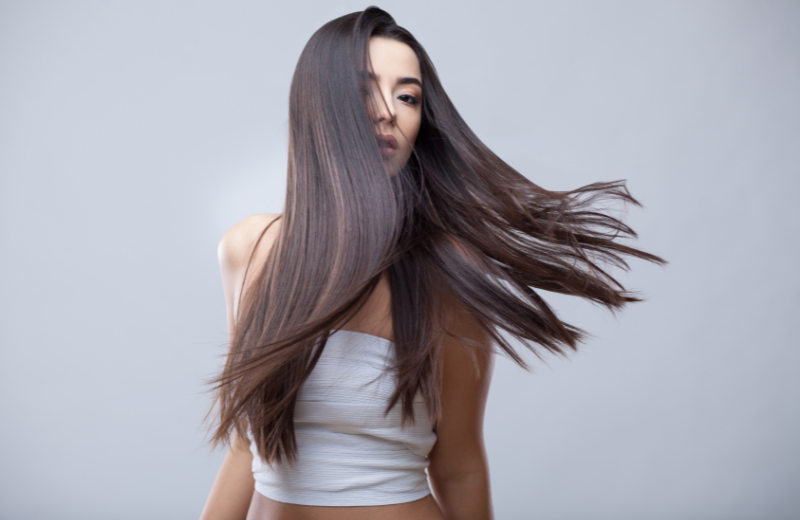
Lavender essential oil offers a wide range of hair benefits. Whether you’re tackling dryness, breakage, or slow hair growth, its natural properties can gently support your hair and scalp.
Encourages Hair Growth
One of the most popular lavender oil uses for hair is its potential to promote growth. Some studies suggest that lavender oil may stimulate hair follicles and increase blood circulation in the scalp. This can help create the right conditions for hair to grow. With consistent use, it may contribute to longer, fuller strands by nourishing the roots and improving overall scalp health.
Reduces Hair Thinning and Breakage
Weak, brittle hair can often be the result of an irritated or undernourished scalp. Lavender oil’s soothing and moisturising properties may help reduce inflammation, nourish the scalp, and protect strands from damage. This can lead to less breakage and stronger, healthier-looking hair. It may also help your hair retain moisture more effectively, making it feel more resilient over time.
Soothes Itchy or Flaky Scalp
Lavender essential oil is especially useful for people dealing with scalp irritation. If you suffer from dandruff, itchiness, or dryness, applying lavender oil (diluted with a carrier oil) may help calm the skin, reduce flaking, and restore balance. Its anti-inflammatory nature makes it ideal for soothing discomfort. A well-balanced scalp is also better at supporting healthy hair growth in the long run.
Fights Bacteria and Fungal Infections
The antimicrobial nature of lavender oil means it may help prevent scalp infections caused by bacteria or fungi. A clean, healthy scalp is essential for hair to grow and thrive. Using lavender essential oil on hair regularly can help maintain this healthy environment. It’s particularly beneficial if you’re prone to scalp acne, itchiness, or buildup that contributes to irritation.
Adds Natural Shine and Softness
Lavender oil isn’t just beneficial for the scalp. When applied to the hair shaft, it can add a lovely shine and make your hair feel softer. It’s a natural way to boost your hair’s appearance without using harsh commercial treatments. The result is hair that looks glossier and healthier with regular use.
How to Use Lavender Essential Oil on Hair
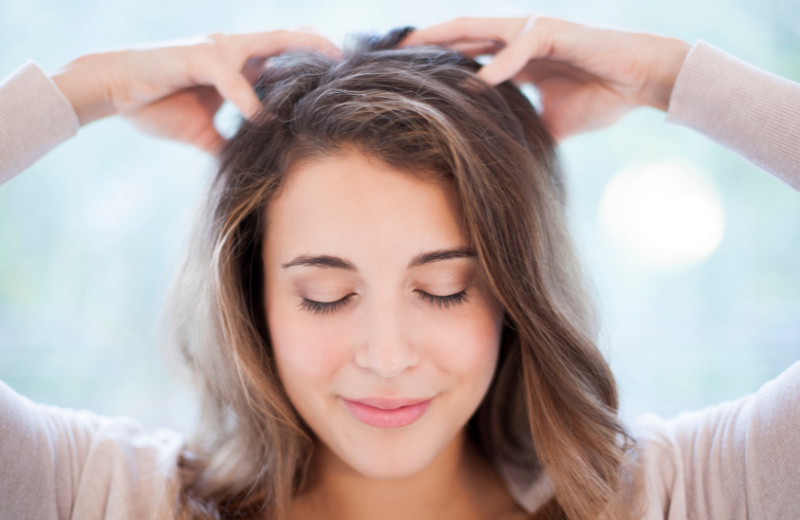
There are several safe and simple ways to use lavender essential oil for your hair. The best method depends on your preferences and how much time you want to spend on your routine.
- Scalp Massage: Massaging diluted lavender oil into your scalp is one of the most effective ways to use it. This relaxing method helps the oil absorb into the skin and stimulate blood flow.
To do this, mix 3 to 5 drops of lavender essential oil with a tablespoon of a carrier oil such as coconut oil, jojoba oil, or olive oil. Massage it gently into your scalp for about 5 to 10 minutes. Leave it in for at least 30 minutes, or even overnight, then rinse thoroughly with shampoo.
- Add to Shampoo or Conditioner: If you prefer a quicker method, you can simply add a few drops of lavender oil to your regular shampoo or conditioner. This is an easy way to enjoy lavender essential oil’s hair benefits without adding an extra step to your routine.
- Lavender Hair Mist: Creating a hair mist is a gentle, refreshing way to apply lavender oil. To make one, fill a small spray bottle with about 100 ml of distilled water and add 5 to 10 drops of lavender oil. You can also include a teaspoon of carrier oil or aloe vera for added moisture. Shake well before each use and spritz lightly onto your hair and scalp.
- Hair Mask Boost: Lavender oil pairs beautifully with homemade hair masks. Try adding a few drops to a mix of natural ingredients like honey, yoghurt, or avocado. This allows you to enjoy lavender oil uses hair care-wise while nourishing your strands with extra moisture and vitamins.
Recommended for you!
Best SellersFrequently Asked Questions About Lavender Oil for Your Hair
Can I Apply Lavender Oil Directly to Hair?
While it’s not dangerous in small amounts, essential oils are highly concentrated and can cause skin irritation if used undiluted. It’s always best to mix lavender oil with a carrier oil before applying it to your scalp or hair. Direct application can also make your hair feel greasy or heavy. By diluting it, you ensure even coverage and reduce the risk of sensitivity or buildup.
How Long Should I Leave Lavender Oil in My Hair?
You can leave diluted lavender oil in your hair for at least 30 minutes. If your scalp tolerates it well, you might even leave it in overnight for deeper nourishment. Just make sure to wash it out thoroughly in the morning to remove any excess oil. This allows you to enjoy the benefits of lavender essential oil for hair without causing buildup or irritation.
Does Lavender Oil Really Regrow Hair?
While it’s not a miracle cure, some studies and testimonials suggest that lavender oil may help support hair regrowth when used regularly. Its anti-inflammatory and antimicrobial effects help create a healthy scalp environment, which is essential for hair to grow.
Lavender oil’s ability to reduce stress may also play a role. Since stress is a known contributor to hair loss, lavender’s calming scent and soothing effects could indirectly support hair retention.
However, results vary from person to person. For those experiencing significant or sudden hair loss, it’s a good idea to speak with a medical professional to explore the root cause.
How Often Can You Use Lavender Oil on Your Hair?
You can use lavender essential oil on your hair around two to three times a week. This frequency allows you to enjoy the lavender essential oil hair benefits without overwhelming your scalp. If you have a sensitive scalp or very fine hair, start with once a week and gradually increase if your skin responds well. Using it too often may lead to a buildup, so it’s important to find a balance that suits your hair’s needs.
Can Lavender Oil Be Used on Hair Daily?
Lavender oil can be used daily in very small, diluted amounts—such as in a hair mist or added to your shampoo—but it’s generally not necessary to apply it every day. Overuse may lead to product build-up or weigh down the hair, especially if you have fine or oily strands. Using it two to three times per week is usually enough to experience the benefits for hair without overdoing it.
Can You Leave Lavender Oil in Your Hair Without Washing It Out?
If diluted properly, lavender oil can be left in your hair without rinsing, especially when used as part of a leave-in mist or light conditioning treatment. This can help keep your scalp refreshed and your hair smelling lovely throughout the day. However, if you’re using a heavier oil blend, it’s best to wash it out after a few hours to avoid residue.
What’s the Best Carrier Oil to Use with Lavender Oil for Hair?
Lavender oil pairs well with carrier oils like coconut oil, jojoba oil, argan oil, or olive oil. These oils dilute the lavender essential oil while adding their own nourishing benefits. Choose a carrier oil based on your hair type: jojoba for oily scalps, coconut for deep hydration, or argan for smoothness and shine.
Can Lavender Oil Help With Dandruff?
One of the key lavender essential oil uses for hair is soothing a dry, itchy scalp and helping reduce dandruff. Its anti-inflammatory and antifungal properties may help calm irritation and keep the scalp balanced. When used regularly, it can support a flake-free scalp and healthier-looking hair.
Does Lavender Oil Work for All Hair Types?
Lavender oil is generally safe and beneficial for all hair types, from curly to straight and thick to fine. Because it’s so gentle, it’s suitable for dry, oily, or combination scalps too. The key is to adjust how you use it; lighter applications for fine or oily hair, and richer masks or massages for dry or damaged hair.
Study Our Essential Oils Business Diploma for £29
Whether you want to soothe your scalp, strengthen your strands, or explore natural ways to boost hair growth, lavender oil offers a beautifully simple solution.
If you’re interested in going beyond just personal use and would like to learn more about working with essential oils in a professional capacity, now is the perfect time. Centre of Excellence offers a detailed Essential Oils Business Diploma Course, designed to teach you everything you need to know about using and selling essential oils confidently. You can get full access to this course for just £29 when you follow the link below.


